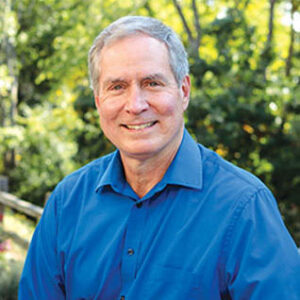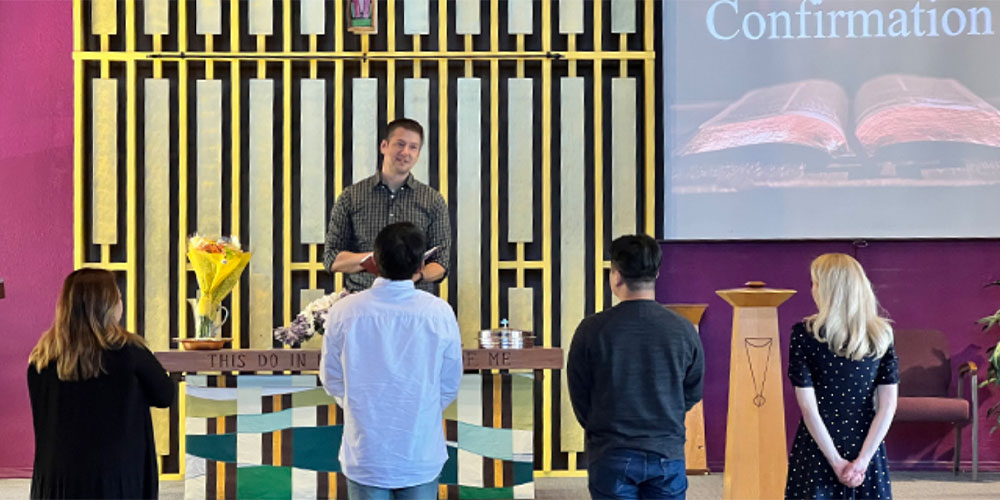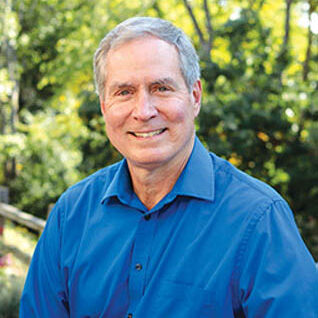 |
If you were confirmed as a youth, what stands out about that day? Excitement? Nervousness? Relief?
What about Examination Sunday? More nervousness? Suspense?
What would you think of going through six Examination Sundays? That was the experience of a man with whom I once spoke. He had an Examination Sunday for each of the six chief parts of the catechism.

I think of my own Examination Sunday. My dad was my pastor. His practice was to instruct the catechism class students to prepare for the examination by reviewing the catechism—all of it. I recall my mom quizzing me on the questions and answers in the catechism and prompting me when I stumbled in reciting the chief parts.
There was another part of my dad’s practice: About 15 minutes before the examination began, he would let the students know which chief part was going to be the focus that day. That announcement sent students feverishly rereading that section of the catechism and checking their understanding of it with one another.
For all my preparation, I was asked all of three questions! I was born in the middle of the baby boomer generation, so I was in a very large class of a large congregation.
My mom’s Examination Sunday experience was just the opposite. She was in a class of two. She recalled how the other student had difficulty answering anything, so she became the answer person. My wife had a similar experience in her class of three.
Searching in the Bible for “Examination Sunday” and “Confirmation Sunday” will not yield any results. Those days and those practices are products of wise biblical application and Christian freedom. What the Bible does teach is that children are to be instructed in the Word of God (Deuteronomy 6:6,7; Ephesians 6:4), public confession of Jesus Christ as Savior is important (Matthew 10:32), and reception of the Lord’s Supper requires spiritual preparation (1 Corinthians 11:27,28). Using these and other biblical principles, including orderliness (1 Corinthians 14:40), Christians throughout the ages have developed practices that we recognize as examination and confirmation.
But because the Bible does not prescribe precise ways of applying those biblical principles, variety abounds in Christian churches. This month’s installment of “Free in Christ” illustrates some of that variety. Because of Christian freedom, congregations in our synod do not have identical approaches to instructing youth in catechism classes.
Nor are examination procedures the same. Some examinations take place within the regular Sunday service schedule. Others occur in special midweek services. Some examinations are not oral but written in a less stressful setting.
And then there is Confirmation Sunday. Does it take place on Palm Sunday? A Sunday in May? A Sunday in the fall? Do the students wear white gowns? Black gowns? (I learned of a congregation that had this practice.) No gowns? Are the new confirmands guests at the Lord’s Supper the day of their confirmation? The week after? Variety abounds.
Before you go, let me share one more confirmation practice: a special Bible verse for each student. If there is a local practice involving this, does the pastor or the student select the verse? My pastor, my dad, selected the verses. His was hardly a sophisticated system. He simply paired up confirmation certificates containing Bible verses with the alphabetical list of students. My verse? John 3:16. I could not have asked for a better one.
Author: James Pope
Volume 111, Number 05
Issue: May 2024
- What to know before you go
- Preachers and listeners
- “You came to visit me”
- One little word
- Appreciating the clouds
- Examined and confirmed
- The heavenly gardener
- Jesus wept
- A memorable Trinity Sunday sermon
- Sympathy +
- Remembering a rite
- Pastor and wife appreciation month
- Thankful saints
- Opening doors in Advent and beyond
- Practicing Christian freedom
- He loves me, he loves me not







